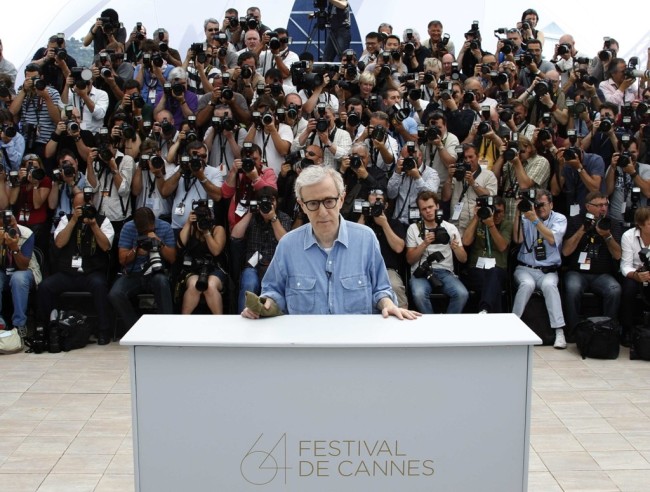I’m not a fan of directors who coast on their laurels. There’s a breed of filmmaker out there—I sense—that is more than comfortable wasting the closing years of their careers—and lives—conceiving and churning out movies as afterthoughts rather than bursts of vitality.
Woody Allen is a perfect example. The man used to be a juggernaut. A credible juggernaut. (I know: funny—given his diminutively nebbish stature). There was a consistency to his output that reconciled the age-old dispute between quantity and quality, especially through the ‘70s and ‘80s. He wrote, shot, and starred in one (debatable) masterpiece after the other: Annie Hall, Manhattan,Stardust Memories, Hannah and Her Sisters, Crimes and Misdemeanors, etc. Now, we’re lucky to get a good—and serviceable—Woody Allen film every four, five years. Which, as I write it, I know sounds ridiculous since most of the heavies—Tarantino, Fincher, Anderson (both)—take their sweet ass time directing something new. All the same, I don’t remember the last time I considered one of Allen’s movies visually arresting. His movies are shot with a stately, amber glow, as if stuck in a quagmire of nostalgia. Surely none of his most recent movies have been as visually and/or editorially breathtaking asManhattan or Husbands and Wives. (And this is coming from a guy who considers Midnight in Paris his favorite Allen film).
I think I know what’s up, though.
Allen writes and shoots like a shark, with the mantra “you stop, you die” banging through his head. With the rare exception, Allen’s directed a picture a year (at least) since 1977, starting with Annie Hall. It’s as if Allen were dashing toward an uncontrollable creative renaissance, an urgent need to capture a city that had been—up until that point—popularly depicted as a place of hookers and taxi drivers. But now? Not so much.
I think, without work, without process and motivation and goals to look forward to, life deteriorates. The same way elderly spouses drop dead in quick succession of one another. When your wife dies (or husband), your home grows into a cavernous expanse, it feels bigger, and the people you know seem further away, busier than ever, and so, with an open schedule, no new plans or incentives, nothing to look forward to, you die several years later. Sometimes sooner.
And I know I shouldn’t begrudge Allen his will to live. After all, he’s produced more classics than most, and even created a new kind of character—the nebbish New Yorker, the consummate neurotic—which helped validate a New York sensibility that was once regarded as weak and ineffectual. For better or for worse, he made it okay for twitchy hipsters to see art in the most trifling of foibles (which has been executed to varying degrees, high and low—ahem, Lena Dunham anyone?).
Still, I can’t help but watch the trailer for his latest film, The Irrational Man, and think that his best days are behind him. Allen’s in his late-70s—79, to be precise—but he looks like he’s in his 90s. The man no longer calls New York his cinematic home. He travels from London to Barcelona to Paris to Rome, he vacations and shoots, writes and vacations, he keeps up with the clarinet at Café Carlyle, he sidesteps one scandal, only to fall prey to another. Same ol’, same ol’, nothing new, nothing vigorous, one actress after the other, boring movies about cutsie breakdowns, resurrections, mental paralysis, treadmill psychosis, one after the other, one year after the other. The man’s tired, his movies are tired.
Maybe now would be a good time for Allen to risk his health, his sanity, and allow himself a year or two off—surely, anything more than that would kill him—before returning with that History of Jazz movie he’s constantly hinting at.
Please Mr. Allen, we need something new.







